Publications
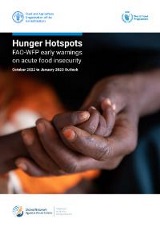
Hunger Hotspots | FAO-WFP early warnings on acute food insecurity: October 2022 to January 2023 Outlook
09/2022
The Food and Agriculture Organization of the United Nations (FAO) and the World Food Programme (WFP) warn that acute food insecurity is likely to deteriorate further in 19 countries or situations – called hunger hotspots – during the outlook period from October 2022 to January 2023.
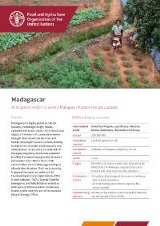
Madagascar: Anticipatory Action to avert a Malagasy migratory locust upsurge
09/2022
Madagascar is highly prone to natural hazards, and in the Grand Sud region, three years of consecutive severe drought have wiped out harvests and hampered people’s access to food.
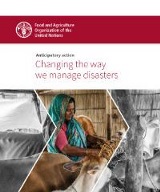
Anticipatory action: Changing the way we manage disasters
09/2022
Anticipatory action is a growing area of disaster management that relies on data analysis to predict where crises might strike and act ahead of time.
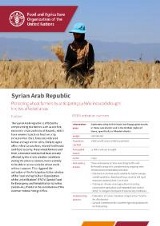
Syrian Arab Republic: Protecting wheat farmers by anticipating La Niña-induced drought in crisis-affected areas
09/2022
The Syrian Arab Republic is affected by compounding risk factors such as conflict, economic crises and natural hazards, which have severe impacts on food security.
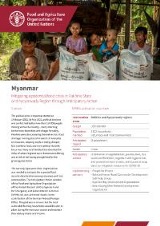
Myanmar: Mitigating a potential food crisis in Rakhine State and Ayeyarwady Region through Anticipatory Action
09/2022
The political crisis in Myanmar started on 1 February 2021, and by May 2021, political tensions and conflict had led to more than 114 000 people moving across the country, with many returning to their rural townships and villages for safety.
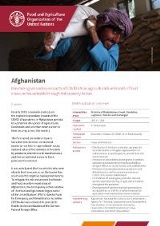
Afghanistan: Minimizing secondary impacts of COVID-19 on agricultural livelihoods of food insecure households through Anticipatory Action
09/2022
In early 2020, a scenario analysis on the expected secondary impacts of the COVID-19 pandemic in Afghanistan pointed to a potential disruption of agricultural livelihoods and a further deterioration in food security.
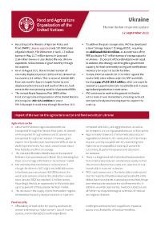
Ukraine: Humanitarian response update, 12 September 2022
09/2022
This document provides an up-to-date summary of the humanitarian situation in Ukraine and the response of the Food and Agriculture Organization of the United Nations (FAO) on the ground.
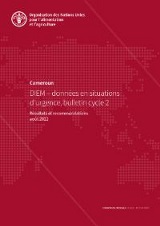
Cameroun: DIEM – données en situations d’urgence, bulletin cycle 2
09/2022
Ce bulletin sur le suivi des données dans les situations d'urgence (DIEM-suivi) présente les résultats de la troisiième évaluation sur le terrain réalisée en avril et mai 2022 au Cameroun.
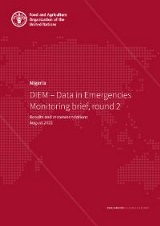
Nigeria: DIEM – Data in Emergencies Monitoring brief, round 2
09/2022
This Data in Emergencies Monitoring (DIEM-Monitoring) brief shares the results of a second-round field assessment conducted between June and July 2022 in Nigeria.
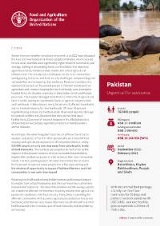
Pakistan: Urgent call for assistance
09/2022
Severe monsoon weather conditions since mid-June 2022 have disrupted the lives and livelihoods of 33 million people in Pakistan, mainly located in rural areas.
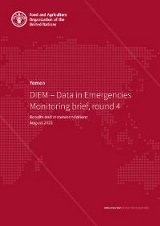
Yemen: DIEM – Data in Emergencies Monitoring brief, round 4
09/2022
This Data in Emergencies Monitoring (DIEM-Monitoring) brief shares the results of a fourth-round field assessment conducted between March and April 2022 in Yemen.
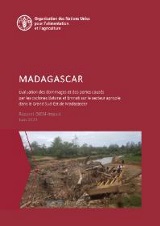
Madagascar: Évaluation des dommages et des pertes causés par les cyclones Batsirai et Emnati sur le secteur agricole dans le Grand Sud-Est de Madagascar
09/2022
En février 2022, la région du Grand Sud-Est de Madagascar a été touchée par deux violents cyclones tropicaux, Batsirai et Emnati , qui ont causé des dommages très importants aux moyens d’existence agricoles et contribué à la dégradation de la sécurité alimentaire d’une partie de la population.
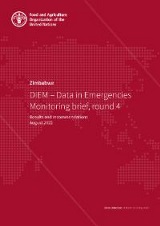
Zimbabwe: DIEM – Data in Emergencies Monitoring brief, round 4
08/2022
This Data in Emergencies Monitoring (DIEM-Monitoring) brief shares the results of a fourth-round field assessment conducted between March and May 2022 in Zimbabwe.

Cabo Verde: Belgium's contribution through the Special Fund for Emergency and Rehabilitation Activities (SFERA)
08/2022
The situation in Cabo Verde has deteriorated significantly following five consecutive years of drought, the economic effects of COVID-19, rising prices and the impact of the war in Ukraine.
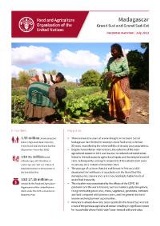
Madagascar Grand Sud and Grand Sud-Est: Response overview | July 2022
08/2022
In Madagascar, three consecutive years of severe drought in the Grand Sud have led to the country’s worst food crisis in the last 20 years, exacerbating the vulnerabilities of already poor populations.

Bangladesh: Belgium contribution through the Special Fund for Emergency and Rehabilitation Activities (SFERA)
08/2022
Through the Special Fund for Emergency and Rehabilitation Activities (SFERA), the Government of the Kingdom of Belgium contributed USD 500 000 to FAO to mitigate the adverse impacts of two waves of devastating flash floods (May–June 2022) on the livelihoods and food security of vulnerable farming and fishing households.
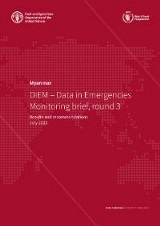
Myanmar: DIEM – Data in Emergencies Monitoring brief, round 3
08/2022
This Data in Emergencies Monitoring (DIEM-Monitoring) brief shares the results of a third-round field assessment conducted between March and May 2022 in Myanmar.
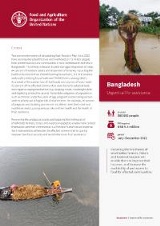
Bangladesh: Urgent call for assistance
08/2022
Two consecutive waves of devastating flash floods in May–June 2022 have severely disrupted the lives and livelihoods of 7.3 million people from predominantly rural communities in nine northeastern districts in Bangladesh.
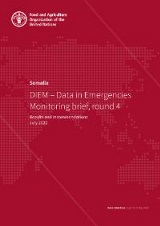
Somalia: DIEM – Data in Emergencies Monitoring brief, round 4
08/2022
This Data in Emergencies Monitoring (DIEM-Monitoring) brief shares the results of a fourth-round field assessment conducted between April and May 2022 in Somalia.
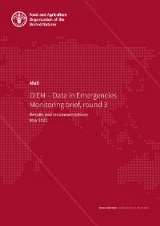
Mali: DIEM – Data in Emergencies Monitoring brief, round 3
08/2022
This Data in Emergencies Monitoring (DIEM-Monitoring) brief shares the results of a third-round field assessment conducted between February and March 2022 in Mali.
